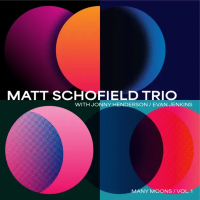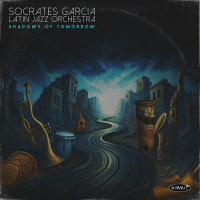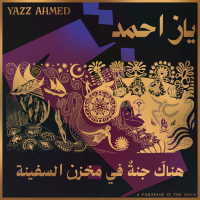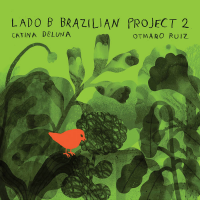Home » Jazz Articles » Extended Analysis » Mike Westbrook Concert Band: The Last Night At The Old Place
Mike Westbrook Concert Band: The Last Night At The Old Place

As to the music, it certainly conveys something of the band's live performances at the time. Having seen the Concert Band live a year later at the Royal Festival Hall (and not appreciated what I was hearing back then), this raucous, Mingus-like performance certainly accords with my, admittedly, hazy recollections. The material is essentially that which would appear on Release. Solos by

John Surman
saxophoneb.1944

Mike Osborne
saxophone, alto1941 - 2007

Malcolm Griffiths
tromboneb.1941

Paul Rutherford
tromboneb.1940
Westbrook has said his intention was that music should be presented as entertainment, as theatre. The pacing is a key to that effect, as is the choice of material—at times ironic or humorous, but always with an affectionate nod in the direction of the jazz tradition. I would have to say that the Deram record serves that purpose better and I particularly miss the Jobim song. But then this is 'work in progress.'
It is right to acknowledge the significance of the Old Place in the development of the nouvelle vague of British jazz. The Last Night at The Old Place allows us to do just that, though we should, of course, not forget The Little Theatre Club or the many other opportunities that musicians found to play together formally or informally, such as the Peanuts Club. It is okay to look back. This was a very important period for British jazz.
I have written extensively on the period and its and, lest there be any doubt on my position, I repeat -these years represent a great leap forward for British (and European) jazz. But I am beginning to feel uncomfortable with some of this. It is as if we would refuse to allow (some of) these musicians and composers to grow up, to develop their art. I think there is a danger that we end up fetishizing the era and its musical products, as if we would preserve them in amber.
I sometimes think that jazz fans and critics, at least in the Anglophone world, seem to operate on the assumption that artists are at their most creative in the first flush of young adulthood, with their powers diminishing with age. Either that, or a period in an artist's work is chosen as that when his or her art reached its apogee. Earlier work is seen to lead progressively and incrementally to their golden years, while that which follows represents a decline in the artist's powers.
Of course, some jazz musicians had the good sense to die young, before they had the chance to disappoint us with their later, inferior music. God bless you

Charlie Parker
saxophone, alto1920 - 1955

John Coltrane
saxophone1926 - 1967

Clifford Brown
trumpetb.1930

George Russell
composer / conductor1923 - 2009

Bill Evans
piano1929 - 1980

Scott LaFaro
bass1936 - 1961

Paul Motian
drums1931 - 2011

Marc Johnson
bassb.1953

Joe La Barbera
drumsb.1948
Or consider

Duke Ellington
piano1899 - 1974

Miles Davis
trumpet1926 - 1991

Stan Getz
saxophone, tenor1927 - 1991

Cecil Taylor
piano1929 - 2018

Anthony Braxton
woodwindsb.1945
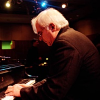
Paul Bley
piano1932 - 2016
Some musicians are allowed to escape such limiting perceptions and, in some cases, deservedly so.

John Surman
saxophoneb.1944

Dave Holland
bassb.1946

John McLaughlin
guitarb.1942

Keith Jarrett
pianob.1945

Chick Corea
piano1941 - 2021

Herbie Hancock
pianob.1940
I often wonder how someone like Coltrane or Bird would be seen if they had lived to a ripe old age. Would 'Trane have gone into jazz-rock like Miles or retreated into a more conservative or conservationist approach to jazz and its traditions? Or would he have been there with Braxton,

Sam Rivers
saxophone, tenor1923 - 2011
I think artists such as Westbrook,

Graham Collier
composer / conductor1937 - 2011
Mike Gibbs
composer / conductor
Michael Garrick
piano1933 - 2011
This is not something that happens in the world of classical music, which increasingly occupies much more of my time and attention. Take Dimitri Shostakovich. Are his gorgeous Fifth Symphony (1937) or epic Seventh (Leningrad) Symphony (1941) to be held in higher esteem than the high drama of the Thirteenth Symphony (1962) with its setting of poems by Yevtushenko, on some specious assumption that he must have been in his prime at the time of the earlier compositions? Incidentally, Shostakovich was thirty-one when he composed the Fifth. Westbrook, as it happens, was also thirty-one when he released his first album as leader, Celebration, in 1967.
I do love the music of the sixties and early seventies. Perhaps some of that is nostalgia but I also think it was a time of great openness musically, culturally, socially and politically. That openness had been lost, at least until recently. The willingness of a young audience (and not so young) to listen to jazz, folk, blues, soul, reggae and classical music, as well as rock was healthy for all these genres or ways of making music. And in writing Trad Dads, Dirty Boppers and Free Fusioneers, those other socio-cultural or culture-political aspects were equal in my considerations to that of the music. Both the art and the historical context are crucial.
But when I suggest that we may be in a similarly fruitful period of jazz in Britain with young musicians such as

Nathaniel Facey
saxophone, alto
Kit Downes
keyboardsb.1986

Yazz Ahmed
trumpet
Jack Davies
trumpetb.1986
Some years ago, I was commissioned to write an article on Westbrook. The editor advised me to concentrate on the earlier records. I pointed out that Westbrook saw his later large and smaller scale albums as of equal stature. The reply, breathtakingly arrogant, was, "Oh, I'm not interested in those."
So, is Release or the astonishing Marching Song or The Last Night At The Old Place to be more highly regarded than Westbrook's London Bridge Is Broken Down (1986) or The Cortege (1983) or On Duke's Birthday (1985) or the lovely, hymn to nature Chanson Irresponsable (2003) or smaller conceits such as Art Wolf (2005) or The Serpent Hit (2013)? From reading the above, you will know my answer.
By all means, buy The Last Night at the Old Place. It is a valuable document of the time. For one, I hope there will be more such material appearing from the Cadillac archive. But not at the expense of greater, more significant, later works recorded by musicians who appeared on the label. These guys had a vision then and still keep it alive in the music they make today. Instead, let us, like Mike Westbrook (and

Kate Westbrook
vocalsTrack Listing
The Few; Lover Man; For Ever & A Day; We Salute You; The Few; Folk Song; Flying Home; Sugar; Who's Who; Can't Get It Out of My Mind; A Life of Its Own.
Personnel
Mike Westbrook Concert Band
band / ensemble / orchestraMike Westbrook: piano; John Surman: baritone saxophone; Nisad Ahmad Khan: tenor saxophone; Mike Osborne, Bernie Living: alto saxophone; Dave Holdsworth: trumpet, fluegelhorn; Malcolm Griffiths, Paul Rutherford: trombone; Harry Miller: bass; Alan Jackson: drums.
Album information
Title: The Last Night at the Old Place | Year Released: 2018 | Record Label: Cadillac Records
Tags
Comments
About Mike Westbrook Concert Band
Instrument: Band / ensemble / orchestra
PREVIOUS / NEXT
Support All About Jazz
 All About Jazz has been a pillar of jazz since 1995, championing it as an art form and, more importantly, supporting the musicians who make it. Our enduring commitment has made "AAJ" one of the most culturally important websites of its kind, read by hundreds of thousands of fans, musicians and industry figures every month.
All About Jazz has been a pillar of jazz since 1995, championing it as an art form and, more importantly, supporting the musicians who make it. Our enduring commitment has made "AAJ" one of the most culturally important websites of its kind, read by hundreds of thousands of fans, musicians and industry figures every month.




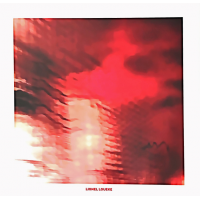



 Buy Now
Buy Now





